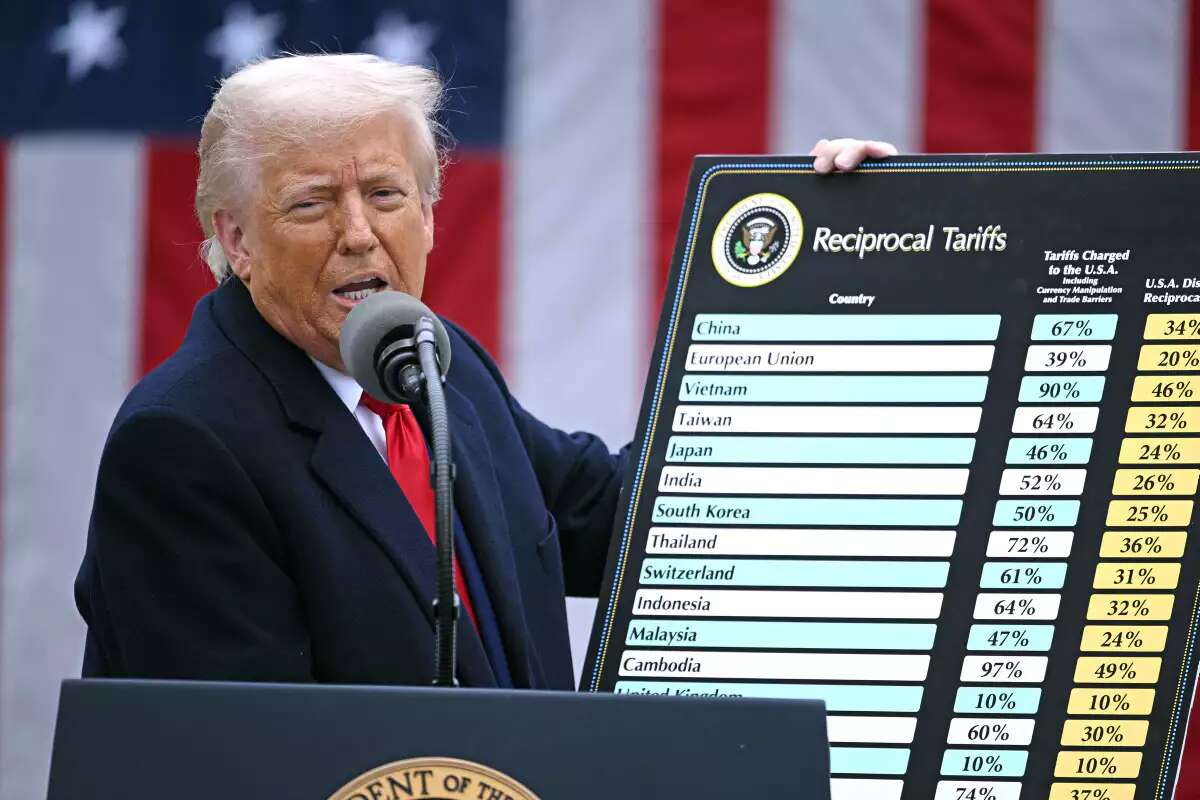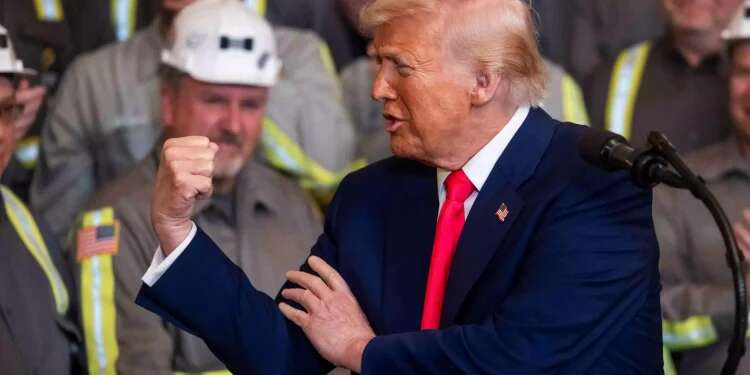A stark contrast emerged this week between the outside world - especially developments linked to Trump - and the optimistic vision presented by numerous speakers at the second MEAD conference in Abu Dhabi. Hundreds of guests from Israel, the US, and Arab countries, some with which Israel has formal ties and others with which it does not, sat together in one hall, and their very presence demonstrated that another way is possible.
Even as the war in Gaza rages on and Trump upends global markets, many individuals and leaders who don't agree on much were able to sit together and sketch out a vision for a better reality - particularly for the Middle East. Naturally, the participants weren't Hamas operatives or other extremists. Conversely, several senior Trump administration officials, who were initially scheduled to attend the conference, were forced to remain in Washington due to an urgent meeting between Trump and the Israeli prime minister.
Still, the sight of senior Israeli officials sitting at the same table with Arab leaders from countries currently at war with Israel was highly unusual. It was made possible only because everything at the conference remained strictly off the radar. These were the ground rules that enabled senior government officials and business leaders from countries such as Qatar, Kuwait, Lebanon, Oman, Malaysia, and Saudi Arabia to converse with Israeli figures as though they had been longtime friends.
But reality came knocking at the door of the air-conditioned hall, and leading the charge were tariffs. The US is the world's largest economy, and President Trump sent shockwaves globally when he declared that from now on, his country would import far less from the rest of the world and produce far more domestically. That is, in essence, the new policy.

How much for an iPhone?
This marks a revolutionary shift. All previous US trade agreements were tossed into the dustbin of history. The world has now entered an economic era so new and uncertain that no one can predict its full consequences. Particularly dramatic is the decision to double the cost of all products the US imports from China. From now on, every American household will pay significantly more for many everyday goods. Imagine, for example, that an iPhone, a flagship American product made in China, now costs twice as much: over $1,100. At such prices, even Israelis might stop smuggling electronics through customs.
In the short term, even Trump admitted life would get harder for Americans. "There will be an adjustment period," he said. The president believes many factories will return to the US, eventually driving prices back down. However, the average American worker still commands higher wages than their counterparts in China or Vietnam. And using the same iPhone example, Apple would need ten years to shift production lines from China to the US. The same applies to car manufacturers and beyond.
So this "surgery" - another word Trump used to describe his policy - won't be quick or painless. Everyone, including his supporters at the conference, agrees he's placing a massive bet on both the American and global economy. He could succeed, as the world ultimately needs America, and it's hard to imagine all countries uniting against it. Yet some speakers warned of an impending global recession. So the key question remains: is this gamble reckless?
Most economists think it is. But amid the doom-laden forecasts, there were a few more optimistic predictions. For instance, some suggested the tariff hikes might indeed trigger a US recession and lower the standard of living - but essential goods, which are already produced domestically, won't become more expensive. Moreover, the shift could boost domestic consumption of "Made in America" products, preventing economic contraction. Additionally, the expected recession would likely force the Federal Reserve to cut interest rates, making loans easier to obtain and thus boosting the economy, especially the housing market, which is a key economic driver.
One of Trump's longtime associates is confident the answer is yes. "I've known him for 40 years. We never did business together, but he's always been a visionary, someone who dreams big and acts boldly. Like building 25 skyscrapers in Manhattan simultaneously, or erecting the glass Trump Towers in the heart of the city. Real estate people used to laugh at him and mock him, but it was just jealousy - he succeeded. He had a different way of seeing things and was willing to take risks others wouldn't. It worked for him," said the associate.

Trump 2.0
But this week, Trump didn't just gamble with the global economy - he also wagered on national security. He has entered into talks with Iran, whose outcomes are anyone's guess. On the face of it, one could trust the man who withdrew from "the worst deal I've ever seen", as Trump described the Obama-era nuclear agreement, not to repeat the catastrophic errors of the 44th president.
According to statements made at the conference, the Americans will set a very high bar in upcoming talks. As Israel expects, Whitkoff, on Trump's behalf, will demand the dismantling - not merely the freezing - of Iran's nuclear infrastructure. Senior US officials also insist that any new agreement must include halting Iran's missile program and its support for proxy terrorist groups across the globe.

If Trump holds firm on these demands and refuses to let Iran stall for time, then both the talks and the nuclear infrastructure are likely to implode quickly. It's clear Iran won't relinquish assets it has developed over decades. But if the president compromises - on either substance or timing - the consequences could be dire. Every day that passes allows Iran to rebuild its air defense infrastructure, damaged by our air force last fall, and to expand its missile capabilities.
Only time will tell whether the daring that once served Trump well in business will pay off again, for him and for the world, as president. One thing is certain: Trump 2.0, the version from his second term, is far more assertive and powerful than Trump 1.0. On the eve of the first Passover of his second term, he is taking drastic steps aimed at leading the West from slavery to freedom - both economic and strategic.
By next Passover, we'll know if he succeeded.




